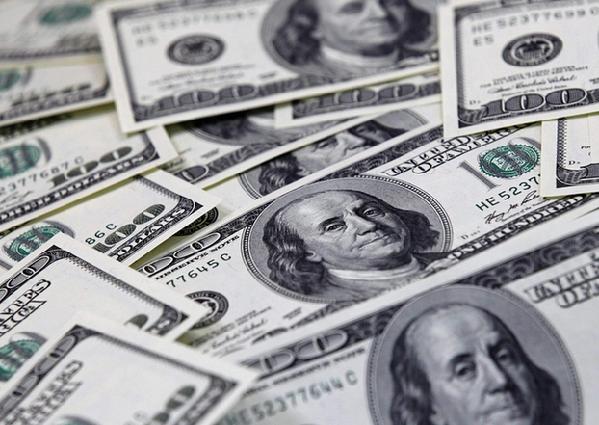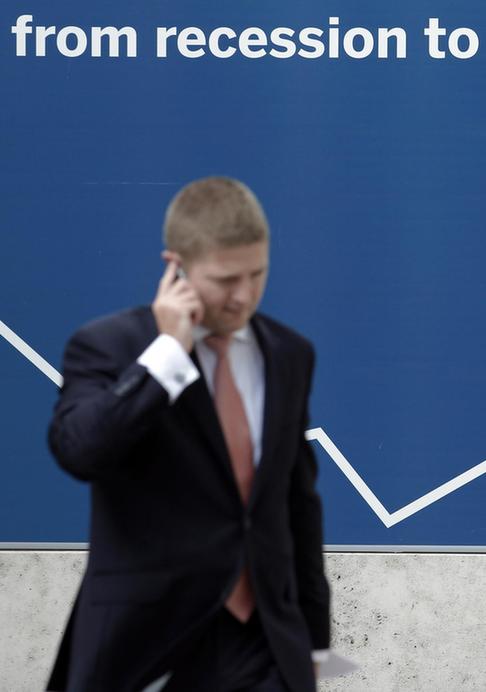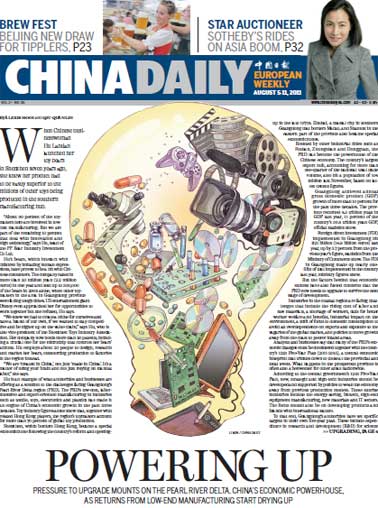Economy
Global policymakers discuss debt crisis, market turmoil
Updated: 2011-08-07 14:18
(Agencies)
TOKYO/SEOUL - Global policymakers held an emergency conference call on Sunday to discuss the twin debt crises in Europe and the United States that are causing market turmoil and stoking fears of the rich world sliding back into recession.
 |
|
US one hundred dollar notes are seen in this picture illustration taken in Seoul February 7, 2011. The United States lost its top-tier AAA credit rating from Standard & Poor's on August 5, 2011 in an unprecedented blow to the world's largest economy in the wake of a political battle that took the country to the brink of default. [Photo/Agencies] |
After a week that saw $2.5 trillion wiped off global stock markets, political leaders are under mounting pressure to reassure investors that Western governments have both the will and ability to reduce their huge and growing public debt loads.
South Korea said finance deputies from the Group of 20 major economies discussed the European debt crisis and US sovereign rating downgrade on Sunday morning in Asian time zones.
A Japanese government source said finance leaders from the Group of Seven big developed economies would also discuss the crisis and may issue a statement afterwards, although the timing of such a call was unclear.
The European Central Bank was scheduled to hold a rare Sunday afternoon conference call. Investors are anxiously looking for the central bank to start buying Italian and Spanish debt on Monday to stabilize prices, a move that has split the ECB governing council.
French President Nicolas Sarkozy, who chairs the G7/G20 group of leading economies, conferred with Britain's Prime Minister David Cameron on Saturday.
"They discussed the euro area and the US debt downgrade. Both agreed the importance of working together, monitoring the situation closely and keeping in contact over the coming days," a spokesman for Cameron said.
In Washington, a White House economic advisor castigated ratings agency Standard and Poor's for downgrading the United States' credit rating to AA-plus from AAA, a move that over time could ripple through markets by pushing up borrowing costs and making it more difficult to secure a lasting recovery.
Washington's Asian allies rallied round the battered superpower, with Japan and South Korea both saying their trust in US Treasuries remained unshaken.
"I expressed our country's position on the (G20 conference) call that there will be no sudden change in our reserve management policy," South Korean Deputy Finance Minister Choi Jong-ku told Reuters by telephone, referring to Seoul's heavy ownership of US bonds out of more than $300 billion in foreign reserves.
"There's no alternative that provides such stability and liquidity," added Choi, who declined to elaborate further on the G20 discussion.
There was no confirmation of the timing of a G7 call for finance ministers and central bankers, but a second Japanese government source said it "would be normal" for it to take place before Asian markets opened. Tokyo's stock market, the biggest in Asia, starts trading at 9 a.m. (0000 GMT) on Monday.
EURO ZONE CRISIS
 |
|
A man passes an advertisement in the Canary Wharf financial district of London August 5, 2011. Banks and commodity stocks fell sharply on Friday as Britain's top share index extended losses into a sixth straight trading day, roiled by a global debt crisis and unmoved by US jobs data easing fears of another economic recession. [Photo/Agencies] |
The most immediate concern for financial markets was the debt crisis in the euro zone, where yields on Italian and Spanish debt have soared to 14-year highs on political wrangling and doubts over the vigour of budget cuts.
Investors saw the ECB's failure to include Italy and Spain in a relaunch of its bond purchases late last week as a sign of the depth of political divisions over the role of the euro zone currency.
German officials want to see stiffer austerity programmes in place before the ECB would shoulder more Italian and Spanish debt.
The danger is that further pressure on Italian and Spanish bonds could undermine an already damaged European banking system and lock Italy, the world's eighth largest economy, out of the market.
Indeed, doubts are growing in the German government that Italy could be rescued by the European emergency fund, even if the fund were tripled in size, according to the German news magazine Der Spiegel.
The financial needs of the country are so huge that it would overwhelm resources, according to government experts, Der Spiegel said in its online edition. Italy's public debt is about 1.8 trillion euros, or 120 percent of its national output.
Italy's Prime Minister Silvio Berlusconi, his government weakened by infighting, ruled out early elections to stem market panic. "This has never been an option," Berlusconi said.
Instead he has pledged to bring forward austerity measures and balance the budget by 2013, a year ahead of schedule -- steps the ECB will consider to gauge whether to buy its bonds.
Germany has consistently said troubled euro-zone governments should focus on spending cuts and internal reforms, not bailouts. The European Financial Stability Fund currently has 440 billion euros and was designed to help small to medium-sized countries, although the spreading of the debt crisis to Italy and Spain has led to calls for its expansion.
E-paper

My Chinese Valentine
Local businesses are cashing in on a traditional love story involving a cow herder and a goddess
Outdoor success
Lifting the veil
Allure of mystery
Specials

Sowing the seeds of doubt
The presence in China of multinationals such as Monsanto and Pioneer is sparking controversy

Lifting the veil
Beijing's Palace Museum, also known as the Forbidden City, is steeped in history, dreams and tears, which are perfectly reflected in design.

Beer we go
Early numbers not so robust for Beijing's first international beer festival
